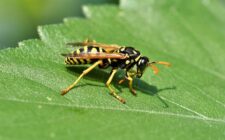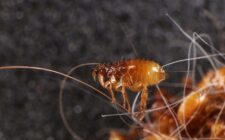Plants, ecosystems, and agriculture all depend on pollination. The most significant component of this entire process is the bee and wasp, which are in charge of a significant amount of it. During the busiest pollination season, they can be quite difficult to manage despite their occasional usefulness. In close proximity to these, you may experience allergic responses, painful stings, and disruptions to your daily routine.
Get in touch with Plano pest control experts if wasps and bees are causing you problems on your property. These experts know exactly what to do and have all the tools they need to handle these pests. Learn some useful tips for properly managing wasps and bees by reading this article. This can assist you in defending yourself, your loved ones, and your property against them.
Recognizing the Value of Wasps and Bees
Many people do not realize how beneficial bees and wasps are to the environment and believe they are merely a nuisance. Understanding these insects’ ecological roles can help homeowners manage them responsibly while maintaining the safety of their property; killing them is not the best course of action.
The Role of Bees in Pollination
The pollination of flowers, fruits, and vegetables in our environment depends heavily on bees. Their action aids in the reproduction of plants by moving pollen from one plant to another. In order to develop habitats for these pollinators while maintaining their own, homeowners must be aware of their routines.
Wasps: The Natural Pest Control Agents
Additionally helpful insects that lessen pest infestations are wasps. They operate as a natural pest management by controlling their number by eating insects like aphids and caterpillars. Although there is a fine line between putting up with them and protecting yourself from them, doing this can help you manage other pests on your property.
Why Encounters Are Heightened During Peak Pollination Seasons?
A lot of bees and wasps visit floral plants, particularly when they are blooming. During these actions, individuals may interact with people more frequently, which increases the requirement for management techniques.
Protect Your House against Wasps and Bees
You can take precautions to prevent encounters with wasps and bees, but doing so does not mean hurting these creatures. Homeowners may live safely during the busiest times of the year by taking simple preventative precautions.
Close Off Possible Entry Points
Examine your property thoroughly to find any openings or crevices where wasps and bees might build their nests. Close off these areas, particularly eaves, attics, and wall voids, with caulk or mesh screens.
Restrict Access to Appetizing Food Sources
Sugary foods and open trash that contain sugary food are always attractive to bees and wasps. To keep these insects away from food, store them in an airtight container and keep your trash cans covered.
Strategic Planting
Always situate your flowering plants away from areas you frequent, such as patios and doorways. If any bees or wasps pollinate your plants, this can help lower the likelihood of unintentional contact.
Safe Nest and Swarm Removal
In the event that wasps or bees choose to build a nest near your house, you must be patient. Ineffective removal techniques raise the risk of stinging and injury from these insects.
Determine the Type of Nest
Identifying the type of net is the first and most crucial stage; wasps typically build paper-like nests, whereas bees typically create waxy hives. Making the appropriate action plan to deal with them requires this. Professional transfer of bee hives to a safer site is necessary.
Do not do it yourself.
Injuries or environmental damage may result from attempting to remove nests without being well-prepared and experienced. Because specialists have the right tools and techniques, it is crucial to clear nests with their assistance.
Time Is Everything
Removal of the nest should ideally take place at colder times, such as the early morning or evening, when wasps and bees are less busy. Consequently, this reduces the likelihood of aggression.




